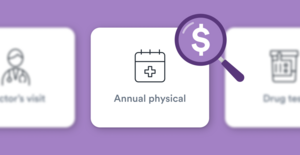Retail Clinics near me in Milwaukee, WI
Own a clinic? Add your location.
Help patients book appointments with you on Solv. It's free!
0 instant-book locations

MinuteClinic Inside CVS Pharmacy, Farwell Ave, Milwaukee
MinuteClinic Inside CVS Pharmacy

Walgreens Healthcare Clinic
Walgreens Healthcare Clinic
Summit Clinical Labs, Fox Point
Summit Clinical Labs

MinuteClinic® at CVS®, N Port Washington Rd, Fox Point
MinuteClinic® at CVS®

Walgreens
Walgreens
FastCare inside Shopko
FastCare inside Shopko
FastCare inside Shopko
FastCare inside Shopko

MinuteClinic Inside CVS Pharmacy, 57th Ave, Kenosha
MinuteClinic Inside CVS Pharmacy
Own a clinic? Add your location.
Help patients book appointments with you on Solv. It's free!
Retail Clinics in Milwaukee
Retail clinics, also known as convenient care clinics, are medical centers located within retail stores, pharmacies, grocery stores, and "big box" stores like Target and Walmart. These clinics provide convenient and accessible healthcare services to address minor health needs that do not require emergency care. Milwaukee residents and visitors can find several retail clinics conveniently located throughout the area. They are typically staffed by nurse practitioners (NPs) or physician assistants (PAs) certified to treat non-life-threatening illnesses and injuries.
When Should I Go to a Retail Clinic?
Retail clinics are ideal for individuals seeking quick and affordable medical care for minor health concerns. If you are experiencing common conditions like fevers, colds, allergies, minor infections, skin conditions, or minor cuts and scrapes, a retail clinic is a suitable option. They offer extended hours, walk-in availability, and short wait times, making them a great choice for non-emergency health issues, especially when primary care offices are closed.
Common Conditions Treated at Retail Clinics
Retail clinics are equipped to diagnose and treat a variety of common health conditions. Some of the typical ailments addressed at these clinics include sore throats, flu symptoms, colds, sinus infections, urinary tract infections, minor respiratory conditions, rashes, and allergies. Additionally, retail clinics offer preventive care services such as vaccinations and health screenings.
Retail Clinics vs Urgent Care Centers
It's essential to understand the difference between retail clinics and urgent care centers. Retail clinics are best suited for minor health concerns, while urgent care centers can handle a broader range of medical issues. If you require immediate care for non-life-threatening conditions, a retail clinic is a convenient and cost-effective choice. However, if you have a chronic health condition, a more complex illness, or an injury requiring X-rays or other advanced diagnostic services, an urgent care center or primary care physician's office may be more appropriate.
Please note that the number of retail clinics in Milwaukee may vary, but they are usually scattered throughout the area, providing residents with accessible and affordable healthcare options for minor ailments and preventive care. Remember, retail clinics should not replace a long-term relationship with a primary care physician, but they can serve as a useful resource for timely and convenient care when needed. Always ensure you have a complete list of your medications and medical history ready when visiting a retail clinic, and if you have a primary care physician, consider coordinating with them for continuity of care.
Retail Clinic FAQs
How much does a visit to a retail clinic cost?
The cost of a visit to a retail clinic can vary depending on the services provided and the location. In general, retail clinics offer cost-effective care for non-emergency health needs. They often have fixed prices for specific services, making it easier to know the cost upfront.
Do retail clinics accept insurance?
Yes, most retail clinics accept insurance. They typically accept commercial insurance, Medicare, and Medicaid. Additionally, they often accept cash payment for those without insurance. It's a good idea to check with the specific retail clinic in question to ensure they accept your insurance plan.
What services do retail clinics in Milwaukee offer?
Retail clinics in Milwaukee provide a range of healthcare services, including treatment for minor illnesses like colds, flu, allergies, and skin conditions. They also offer vaccinations, health screenings, and help with minor injuries.
Do I need an appointment to visit a retail clinic in Milwaukee?
Most retail clinics in Milwaukee offer walk-in appointments, meaning you can simply show up without an appointment. This convenience makes them an accessible option for timely healthcare services.
Who staffs the retail clinics in Milwaukee?
Retail clinics in Milwaukee are typically staffed by certified nurse practitioners (NPs) and physician assistants (PAs). These healthcare professionals are qualified to treat non-life-threatening conditions.
When should I go to a retail clinic in Milwaukee?
Retail clinics in Milwaukee are best suited for minor health needs, such as common colds, sore throats, minor injuries, and preventive care like vaccinations. For serious or life-threatening conditions, it's essential to go to an emergency room or call 911.
Can I get a flu shot at a retail clinic in Milwaukee?
Yes, many retail clinics in Milwaukee provide flu shots and other vaccinations to help you stay protected during flu season and beyond.
Will I receive quality care at a retail clinic in Milwaukee?
Retail clinics in Milwaukee deliver care of equivalent quality compared to other healthcare settings. They follow evidence-based care management protocols to ensure patients receive proper treatment.
Can I get my medical records transferred to my primary care physician from a retail clinic in Milwaukee?
Yes, retail clinics in Milwaukee have operational protocols in place to facilitate the timely transfer of medical records to your primary care physician.
Can retail clinics in Milwaukee help me find a primary care physician if I don't have one?
Absolutely! Retail clinics in Milwaukee can assist you in identifying a primary care provider in the community if you don't have an established relationship with one. They can provide you with a list of nearby family physicians accepting new patients.
Solv has strict sourcing guidelines and relies on peer-reviewed studies, academic research institutions, and medical associations. We avoid using tertiary references.
Everyday Healthcare, Simplified
Expert advice to help you live your best life







